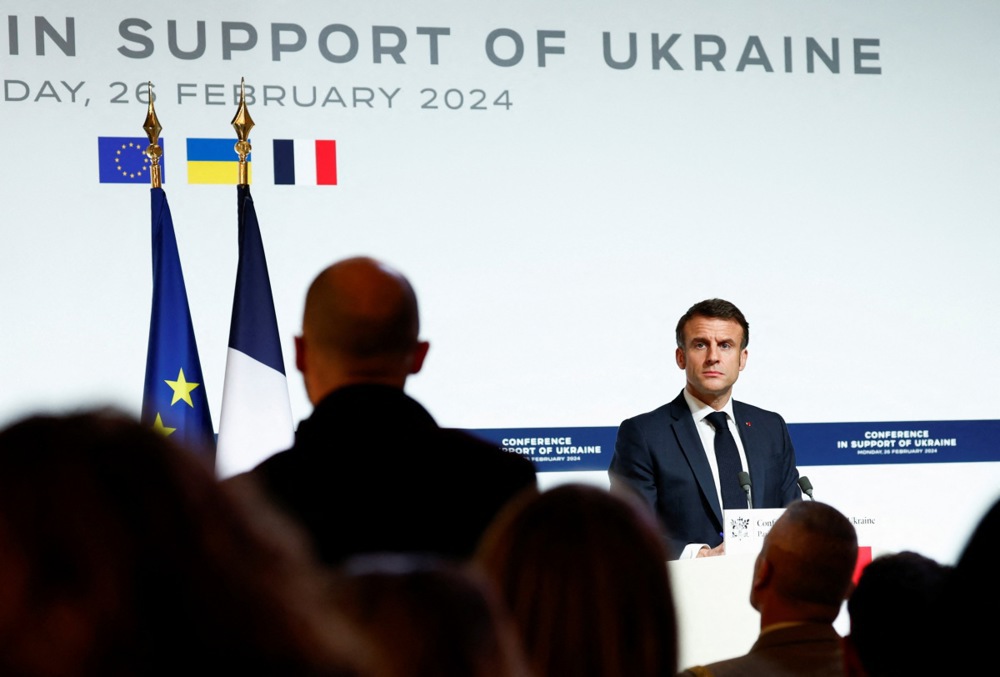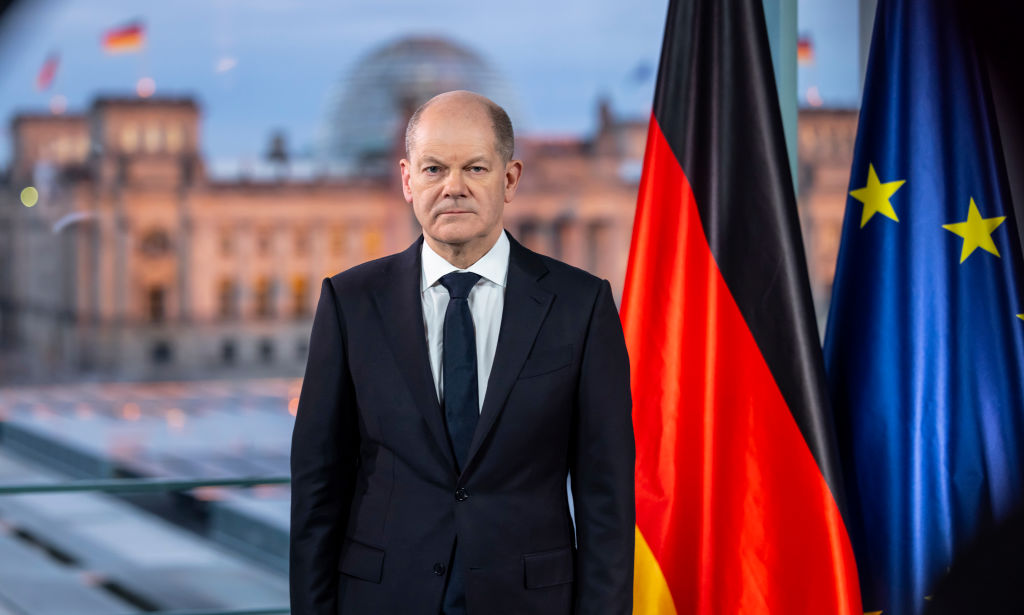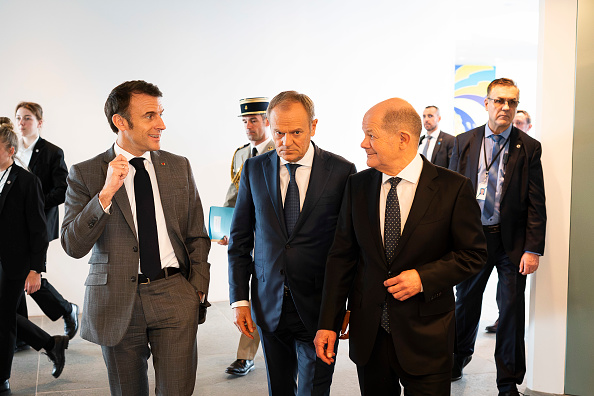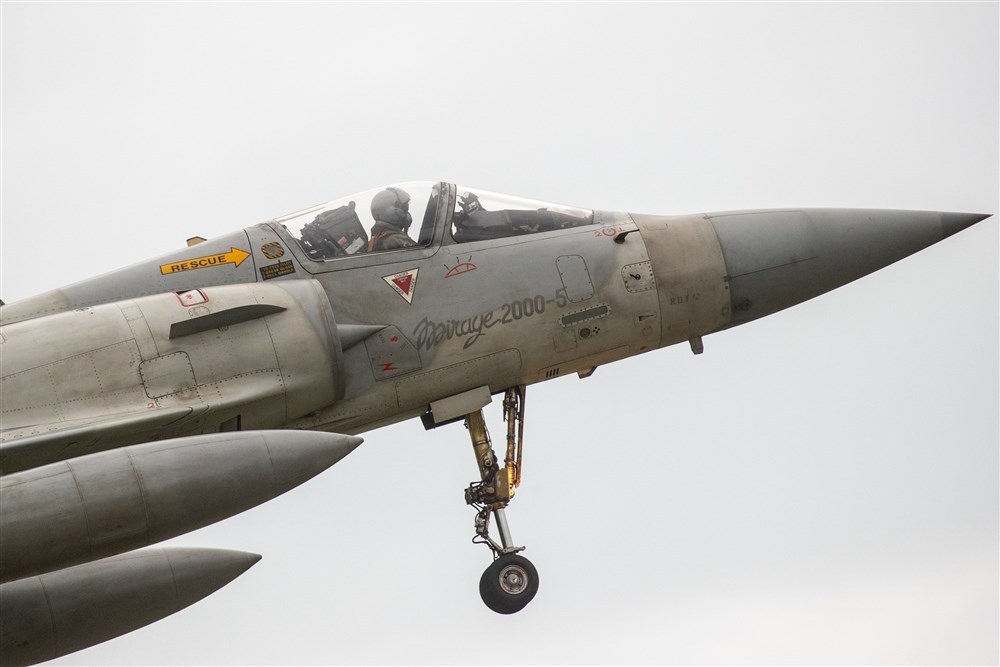Ukraine should be allowed to use donated Western weapons to “neutralise” mainland Russian military installations, French President Emmanuel Macron said.
At a press event on May 28 with German Chancellor Olaf Scholz, Macron showed a map of launch sites within mainland Russia, from where the Kremlin was allegedly able to attack positions belonging to Ukraine.
According to Macron, these bases could fire on Ukraine without fear of reprisal due to the country being mostly forbidden from using donated weaponry to attack Russia proper, something he now wants to see changed.
“We think that we should allow them to neutralise military sites where missiles are fired,” Macron said, shortly after receiving a peace prize.
? BREAKING : Macron just announced France SUPPORTS hitting military sites used to bomb Ukraine IN RUSSIA ! This is HUGE, the first time a major Nato member has the balls to do it.
Congrats, Macron ?? ! And Joe Biden, what the HELL are you waiting for ?! #LetUkraineStrikeBack ! pic.twitter.com/B4q8YtelXB
— Le Zelenskyste ???? (@VolodimirZelen1) May 28, 2024
“How do you explain to Ukrainians that it will be necessary to protect these cities and all we currently see in Kharkiv, if we tell them, ‘You are not allowed to reach bases from where the missiles are fired’?” Macron said.
“In fact, we tell them: ‘We deliver weapons, but you can’t defend yourselves.’
“So we stay exactly within the same framework. We think we should allow them to neutralise military sites from which the missiles are fired and military sites from which Ukraine is attacked,” he added.
“But we must not allow Ukraine to hit other targets, including civilian ones, in Russia.”
France has been vocal about the lengths it will go to help Ukraine. Previously, Macron indicated that sending NATO-aligned troops to the country should remain an option.
On May 28, Ukraine’s top armed forces commander Oleksandr Syrskyi said he had signed paperwork with France’s defence ministry allowing French military instructors to visit Ukrainian training centres.
French President Emanuel Macron has floated the possibility of sending troops to Ukraine if defensive lines collapse. https://t.co/bfGqhPQIZu
— Brussels Signal (@brusselssignal) May 2, 2024
Scholz was more careful in his comments at the press event, but did not contradict Macron.
The Chancellor instead argued that, as long as Ukraine respected international law and the conditions of countries supplying the weapons, it was “allowed to defend itself”.
“Ukraine has every possibility under international law for what it is doing. That has to be said explicitly,” Scholz stressed.
Most Western countries gave strict conditions to Ukraine when donating weapons, fearing an escalation of the conflict with Russia.
Such concerns were the reason Germany has historically been hesitant to provide advanced weaponry, with the country still refusing to send Taurus cruise missiles to Ukraine today.
It was also slow to send its Leopard 2 battle tanks to the country, only moving to do so once the US and France decided to send heavy tanks.
Now, as Ukraine has been lacking ammunition for months and Russia has recently staged a large-scale offensive, many in the West are dropping their reserves over a possible ramp-up of the war with Moscow.
At the beginning of May, British foreign secretary David Cameron said Ukraine could use the weapons provided by London to strike within Russia and that it was up to Kyiv whether it decided to do so or not.
“Ukraine has that right. Just as Russia is striking inside Ukraine, you can quite understand why Ukraine feels the need to make sure it’s defending itself,” Cameron told Reuters.
In an article in UK news magazine The Economist on May 24, NATO Secretary General Jens Stoltenberg pleaded for members to let Ukraine launch strikes into Russia with the weapons it had received from the West.
Despite that, former US Navy admiral John Kirby, the White House National Security Council co-ordinator for strategic communications, said on May 28 that Ukraine should not use American weapons to attack Russian soil.
“There’s no change to our policy at this point. We don’t encourage or enable the use of US-supplied weapons to strike inside Russia,” he said.
On May 29, Russian President Vladimir Putin warned of “serious consequences” if Ukraine was allowed to use Western weapons to strike targets in Russia.
“This constant escalation can lead to serious consequences,” Putin said during a visit to Uzbekistan.
“In Europe, especially in small countries, they should be aware of what they are playing with,” he said, noting that many European countries had a “small territory” and a “dense population”.
“And this factor, which they should keep in mind before they talk about striking deep into Russian territory, is a serious thing,” Putin stated.
The Russian President said he believed there were already Western military instructors and advisors operating as “mercenaries” in Ukraine.
He added that sending such personnel officially would mark a further “escalation” and “another step towards a serious conflict in Europe, towards a global conflict”.
Putin warned: “We will do what we think is necessary regardless of who is on the territory of Ukraine.”





